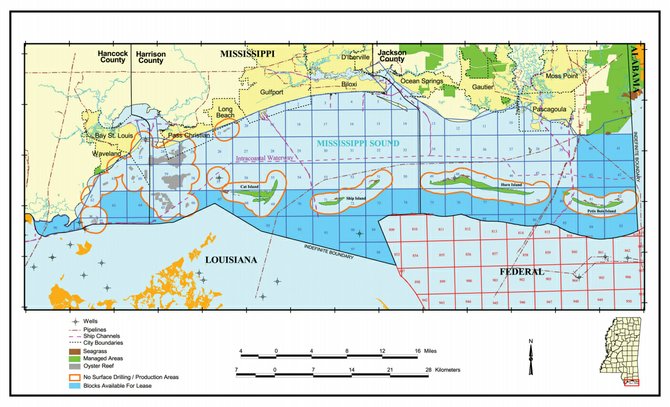Singletary's ruling stalls the Mississippi Development Authority's attempts to enact rules which would allow seismic testing and leasing of parts of the Mississippi Sound for drilling.
JACKSON, Miss. (AP) — A Hinds County judge says the state must write a better economic impact statement on proposed offshore natural gas and oil exploration in parts of the Mississippi Sound before it can enact rules to lease areas that could be drilled.
"A cursory reading of the EIS finds that it is severely lacking in the requirements," Chancery Court Judge William Singletary ruled Thursday in a seven-page opinion.
Singletary's ruling stalls the Mississippi Development Authority's attempts to enact rules which would allow seismic testing and leasing of parts of the Sound for drilling. Because the tracts are expected to yield mostly natural gas and those prices are now relatively low, it's unclear whether any drillers would seek leases.
The Sierra Club and Gulf Restoration Network sued to block the rules. They commissioned a study that says drilling would scare off so many tourists that those harms would outweigh benefits to the state.
"They've got to go back to square one," said Louie Miller, director of the Mississippi Sierra Club. "They're going to have to go back and see what the impact of drilling is on the tourist economy."
The agency limited its analysis to only the costs and benefits of seismic exploration and leasing, not to the actual drilling. MDA claimed lawmakers had already decided in a 2004 law that the benefits outweighed the risk. But Singletary rejected that argument, adopting opponents' claim that the impact statement had to consider the risks and benefits of drilling.
"Exploration and extraction are intrinsically linked to the leasing process; the same is obviously included in the implementing and enforcing of the proposed action, Singletary wrote. "MDA acknowledges such by its statement that the ultimate goal of leasing is to explore and extract oil and natural gas."
MDA spokeswoman Marlo Dorsey said the agency isn't sure yet whether it will have to totally restart the rule-making process, which would require a new rule to be published to allow public comment and potentially a public hearing.
"We have just seen it this afternoon and we're trying to work with the attorneys to see what our next steps need to be," she said.
A court in another case ordered the Department of Human Services to issue a new economic impact statement on requiring child care centers to use finger scanners to track attendance. It then had to schedule a new public hearing.
MDA had tried to challenge the standing of the environmental groups to bring the case, saying they hadn't properly exhausted administrative channels to appeal MDA's ruling, but Singletary rejected that argument, noting that the authority held a two-day appeal hearing based on appeal document it later described as deficient.
Copyright Associated Press. All rights reserved. This material may not be published, broadcast, rewritten, or redistributed.



Comments
Use the comment form below to begin a discussion about this content.